Our City
300 Days of Sunshine
Denver is known for its beautiful weather, sweeping views, excellent city life, and an array of outdoor activities courtesy of our proximity to the magnificent Rocky MountainsThe University of Colorado School of Medicine (CU SOM) offers a three-year fellowship training program in the field of Pediatric Gastroenterology, Hepatology and Nutrition. We also offer a fourth-year pediatric transplant hepatology fellowship.
The Program is within the Section of Gastroenterology, Hepatology and Nutrition in the Department of Pediatrics at the CU SOM. Clinical training takes place at the Children's Hospital Colorado, conveniently located adjacent to the SOM, and our research training occurs throughout our world-class facilities within Anschutz Medical Campus.
The Program Director is Dr. Dania Brigham, Assistant Professor of Pediatrics and Dr. Marisa Stahl, Assistant Professor of Pediatrics is the Associate Program Director. The Program has been continuously fully accredited in Pediatric Gastroenterology by the Residency Review Committee of ACGME since the specialty was first recognized by ACGME in December 1994. To better meet the needs of applicants, our pediatric gastroenterology fellowship training program participates in the National Resident Match Program (NRMP) and the Electronic Residency Application Service ( ERAS) program for fellowship applicants.
The overall goal of our T32 research training program is to provide a diverse group of post-doctoral trainees with an exceptional supervised training and mentoring experience, to allow them to develop or enhance their research skills, knowledge and grantsmanship in preparation for a successful pediatric gastroenterology/ hepatology-related research career.
Program Leadership | ||
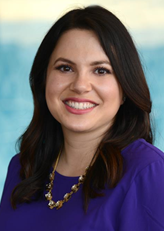 | 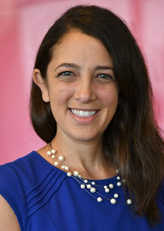 | 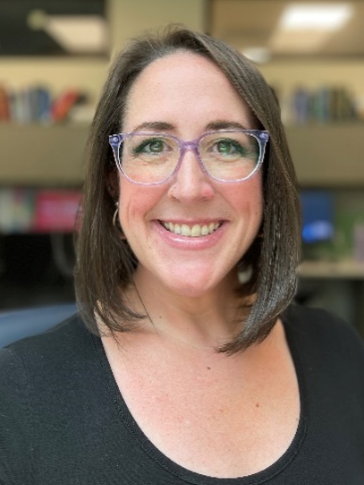 |
Dania Brigham, MDProgram Director Click to email Dr. Brigham | Marisa Stahl, MD, MSCSAssociate Program DirectorClick to email Dr. Stahl | Meg Book-Smith Program Coordinator |
Our City
300 Days of Sunshine
Denver is known for its beautiful weather, sweeping views, excellent city life, and an array of outdoor activities courtesy of our proximity to the magnificent Rocky MountainsOur Hospital
Ranked #1 in the Rocky Mountain Region
Children's Hospital Colorado consistently ranks in the top 20 on the US News Best Children's Hospitals Honor Roll and as the #1 Children's Hospital in Colorado and the Rocky Mountain regionOur Division
Nationally Ranked: The Digestive Health Institute is one of the largest volume centers in the country and is consistently ranked as a top program in the US News and World ReportThe first year of fellowship is dedicated to acquiring clinical proficiency in both inpatient and outpatient aspects of Pediatric GI/Hepatology/Nutrition. The clinical activities of the first year are based at Children's Hospital Colorado, a 440-bed facility, which is the major teaching hospital for the Department of Pediatrics of the CU SOM. Children's Hospital Colorado is also the pediatric home to the NIH-supported Colorado Clinical and Translational Sciences Institute, housing the Pediatric Clinical Translational Research Center that is available to fellows and faculty to assist with performance of clinical investigations.
The GI/Hepatology/Nutrition service consults on or is the primary attending physician for approximately 5,000 inpatient visits per year and sees over 18,000 outpatient visits per year. Over a one-year period, the GI/Hepatology/Nutrition Section performs almost 5,000 procedures, including approximately 2,750 upper gastrointestinal endoscopies, 800 colonoscopies and flexible sigmoidoscopies, 150 liver biopsies, 50 ERCPs and other gastrointestinal procedures (motility studies, breath hydrogen analyses, esophageal pH studies, esophageal impedance, video capsule endoscopy, etc). The three first-year fellows rotate between the Inpatient Service, Consult Service, and Outpatient /Procedure Services.
The fellow performs all in-hospital consultations and supervises the care of all patients admitted to either the GI or the Liver Medical services, under the supervision and mentorship of the attending GI or Liver physician. Emphasis is placed on physical exam skills, developing an accurate differential diagnosis, learning the methods of evaluating and treating the child and assessing the family's needs (family-centered care). Diagnostic procedures required by these patients are performed by the fellow under the supervision of the GI or Liver attending physician. The fellow will be exposed to the full range of GI, liver, pancreatic, and nutritional problems, including acute and chronic diarrhea and colitis, vomiting disorders, esophageal and intestinal motility disorders, failure-to-thrive and nutritional problems, allergic GI diseases, inflammatory bowel disease, functional GI diseases, chronic constipation and abdominal pain, short gut syndrome, parenteral and enteral nutrition management, acute and chronic hepatitis, a variety of metabolic and genetic liver diseases, neonatal cholestasis, acute and chronic liver failure, liver transplant, chronic cholestatic disorders, bile duct and gall bladder disorders, acute and chronic pancreatitis, GI problems of the immunosuppressed or immunodeficient patient, and others. The Inpatient and Consult services range from 10-20 patients each. The GI and Liver Medical services include a dietitian and social worker as part of the inpatient teams.
While on the Outpatient Clinics Rotation, the fellow attends four half-day clinics per week, including urgent outpatient clinics and multidisciplinary subspecialty clinics such as Liver Clinic, the Gastrointestinal Eosinophilic Disease Program, Intestinal Rehabilitation Clinic, Neurogastroenterology Motility Clinic, Celiac Disease Clinic, IBD Clinic, and Aerodigestive Clinic. The fellows are exposed to the full range of outpatient GI/ liver/nutrition disorders and learn the appropriate and cost-effective evaluation and management of these diseases in infants and children. In addition, fellows have their own Continuity Clinic (one ½ day per week) throughout their 3 years of fellowship training. The fellow functions as the primary GI specialist for patients seen within their Continuity Clinic and allows the fellow to gain expertise in longitudinal outpatient care. The Fellows Continuity Clinic is overseen by a small group of attendings in order to offer focused mentoring and consistency in precepting.
During the Outpatient Procedures Rotation, the fellow attends four half-day procedure block times per week under the direction of the attending physician assigned to the block. The fellow will learn to perform and interpret the full gamut of GI diagnostic and interventional procedures, including upper gastrointestinal endoscopy, colonoscopy and sigmoidoscopy, capsule endoscopy, polypectomy, esophageal pH and pH/impedence testing, duodenal intubation, percutaneous liver biopsy, esophageal variceal sclerotherapy and band ligation, endoscopic retrograde cholangiopancreatography, pneumatic and non-pneumatic dilatation of strictures, removal of GI tract foreign bodies and percutaneous endoscopic gastrostomy tube placement.
During the first year fellow four-week elective rotation, the fellows participate in the Exploring Research Opportunities Rotation during the afternoon. Working with the Program Director and Section Chief, a research plan for the fellow’s second and third years will be developed. By the end of their first year, the fellow presents his or her research plans to the Scholarship Oversight Committee for advice and approval. This Oversight Committee will systematically monitor the fellow's progress during the next two years, assuring appropriate progress and success of the fellow.
The second and third years of training are primarily devoted to research training (clinical, translational, or basic research) which will be carried out in the laboratories and facilities of the CU SOM and Children's Colorado. Responsibilities on the inpatient services are minimized during years 2 and 3 in order to provide 80% protected time for research training. During the second and third years of training, the fellow continues to attend one half-day continuity clinic per week, the teaching conferences of the Section, and rotate on the inpatient service for 2-4 weeks per year.
During the first year of fellowship, the fellow will meet with each of the Pediatric Gastroenterology/Hepatology/Nutrition faculty and other appropriate researchers at University of Colorado School of Medicine (CU SOM), and, in conjunction with the Director of Fellowship Training and the Section Chief, will choose a mentor and a field of study. The Department of Pediatrics at CU SOM has a formal core educational program in Ethics, Professionalism, Statistics, Evidence-Based Medicine and Quality Improvement for all fellows that begins in the first year of fellowship. For fellows who elect to pursue Clinical and Translational Research, we encourage completion of a Masters in Clinical Sciences through the Clinical Sciences Program. There is a core curriculum on research ethics for fellows led by the Colorado Clinical and Translational Sciences Institute (CCTSI). Basic science research trainees are encouraged to participate in appropriate didactic coursework, as well as mentored laboratory research. Research opportunities are numerous, under the mentorship of one of the Pediatric GI/ Hepatology/ Nutrition faculty or another mentor of the School of Medicine.
The GI/Hepatology/Nutrition Fellowship is an NIH-funded training program in pediatric gastroenterology, hepatology and nutrition, and works closely with the NIH-supported Mucosal Inflammation Program and Clinical Nutrition Research Unit at CU SOM. In these Centers, there is a large number of NIH-supported investigators studying basic and clinical areas. In addition, the CCTSI at CU SOM, in conjunction with the Clinical Translational Research Center at Children's Colorado, provides training in clinical and translational research, and provides assistance with study design, biostatistics, bioinformatics, research nursing, and financial and scientific support for clinical investigation. Our NIDDK-Funded T32 Pediatric GI Fellowship Training Program is co-directed by Drs. Ronald J. Sokol, MD, Chief of the Section of Pediatric Gastroenterology, Hepatology and Nutrition, and Edwin DeZoeten, MD, PhD, IBD Program Director. The GI/Hepatology/Nutrition Section is also an active Clinical Center in 7 national research consortia studying childhood liver and gastrointestinal diseases, bringing many clinical research opportunities for fellows. The GI/Hepatology/Nutrition Section research is funded by more than 3.5 million dollars per year in grant support.
The following teaching conferences play an important role in the training of fellows and housestaff:
Additional Learning Opportunities:
Subspecialty Excellence in Educational Leadership & Scholarship (SEELS) Program :
Pediatric Fellowship Educational Series
This educational series has been developed by the Committee on Fellowship Education to address areas of scholarly interest common to all pediatric fellows. Nearly 100 sub-specialized physicians in training will attend 5-6 half-day seminars spread across their 3 years of fellowship.
Pediatric Biostatistics for Clinicians Course:
This course is primarily intended for 2nd and 3rd year Department of Pediatrics fellows as part of the comprehensive fellowship educational program. Designed to help fellows to develop an ability to be a critical consumer of the literature and develop familiarity with many commonly used statistical methods.
Advanced Degrees Available at CU:
Masters of Science in Clinical Science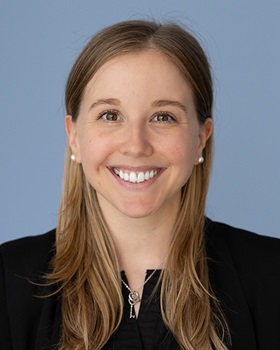
Anna “Bella” Barclay, MD
Why did you decide to pursue pediatric gastroenterology?
I chose to do pediatric GI fellowship because I loved the variety in pathology, patients, and hands on experiences. I love being able to take care of children of all ages from newborn babies to teenagers going off to college, and I was drawn to the combination of inpatient care, clinic, and procedures.
Why did you choose to train at Children’s Hospital Colorado?
Having done residency at CHCO, I knew that training here for fellowship would make me a very competent pediatric gastroenterologist with robust clinical and research experiences. The mentors (both faculty and fellows) that I worked with were intelligent, thoughtful, and welcoming throughout residency, and I knew I wanted to continue to learn from them during fellowship!
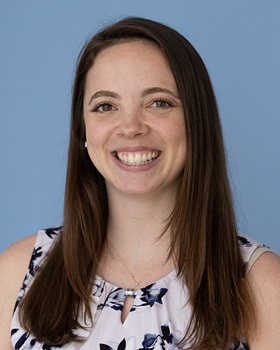
Nicole Barsanti, DO
Why did you decide to pursue pediatric gastroenterology?
I chose to pursue peds GI since it gave me a blend of continuity of care through clinics, but then more acute patients through both inpatient service and our transplant patients. Plus, you get to do procedures which adds more variety to your days. Beyond that I really enjoy the pathophysiology of GI diseases and saw myself happy practicing general GI or specializing even further.
Why did you choose to train at Children’s Hospital Colorado?
I decided to train at Children’s for a variety of reasons. Initially it fit the type of training that I was looking for - larger cohort, exposure to a variety of the niches, and liver transplants. Beyond the initial training aspect, the entire program felt like family when I did my interviews. I appreciated how welcoming and approachable everyone felt, and it was easy to see myself in their community. Plus – what’s not to love about Colorado! I did undergrad at Boulder and have family that lives a few hours outside of Denver, so I'm so happy to be back!
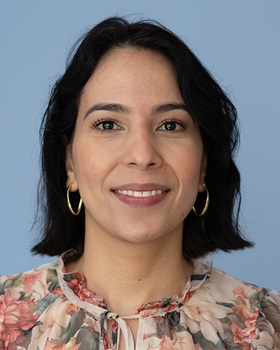
Tighrid Brouzine, MD
Why did you decide to pursue pediatric gastroenterology?
I was drawn to pediatric gastroenterology because it blends clinical complexity with a wide-ranging diversity of conditions. I thrive on the intellectual challenge of managing both acute and chronic illnesses—ranging from nutritional and feeding disorders to autoimmune diseases and liver pathology. What makes the field even more fulfilling is the procedural component, which keeps me actively engaged in patient care and enables timely, hands-on diagnosis and treatment.
Why did you choose to train at Children’s Hospital Colorado?
I chose Children’s Hospital Colorado because of its strong reputation in pediatric subspecialty care, collaborative academic environment, and the opportunity to train with leaders in the field. The program fosters both clinical excellence and research innovation while maintaining a deep commitment to mentorship and education. I knew this environment would challenge me while also supporting my growth as a pediatric gastroenterologist.
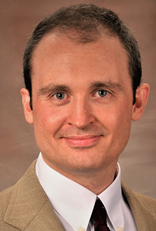
Nicholas “Alex” Dodd, MD
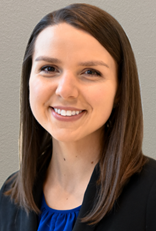
Kelsey Ryan, MD
Why did you decide to pursue pediatric gastroenterology?
I choose gastroenterology because of early exposure I had doing research in peds GI in medical school. I got to meet patients and families and watch some endoscopies. I love the combination of procedures, pathology, radiology and varied disease states, and that we treat patients of all ages! After having fabulous mentors along the way and going to NASPGHAN conferences where I saw what a friendly, supportive community pediatric GI was, I knew I wanted to be a part of it! GI people are the most fun :)
Why did you choose to train at Children’s Hospital Colorado?
I chose to train at Children's Hospital Colorado for clinical and research training I would have here in liver, GI, and nutrition. I wanted a high volume center where I would learn by doing and have several other fellows to meet and learn from as well. The enthusiasm for the program from my faculty interviewers and dedication to fellow education was evident on my interview day. Having always lived in the midwest, I was thrilled for the opportunity to live in Colorado for the hiking, sunshine, breweries, and maybe I will even try skiing for the first time!
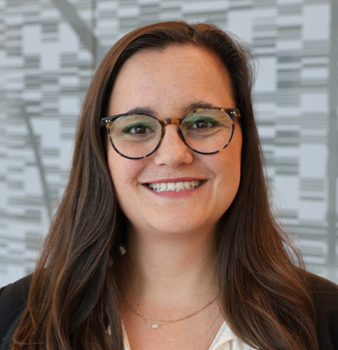
Julia Elizabeth Sessions, MD
Why did you decide to pursue pediatric gastroenterology?
I chose to pursue pediatric gastroenterology because of the diversity in the field. I really enjoy taking care of very sick patients in the ICUs and also less sick children in clinic. I feel like gastroenterologists really take care of the whole child and often fill a role of primary care physician for complex patients. Plus, you get to do procedures, which is awesome!
Why did you choose to train at Children’s Hospital Colorado?
I chose to train at Children's Hospital Colorado for many different reasons. CHCO has a big group of gastroenterologists/hepatologists who specialize in an array of fields within GI, hepatology, and nutrition and allows the fellows to have exposure to different career paths. The faculty and fellows I met on my interview day and communicated with throughout interview season were all extremely welcoming and supportive. Living in beautiful Colorado is a great bonus too!
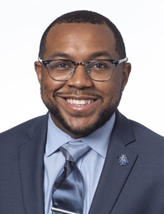
Darius Blanding, MD
Why did you decide to pursue pediatric gastroenterology?
Pediatric gastroenterology provided the perfect mix of all the aspects of medicine I enjoyed. I get to work in both the outpatient clinic and inpatient service as well as do procedures. I get a wide variety of disease processes and acuity that keep the job interesting.
What are your research interests?
My primary research project will be a qualitative study with a focus on health disparities in patients with eosinophilic esophagitis (EoE).
Why did you choose to train at Children’s Hospital Colorado?
I found myself comparing every program during the interview season to CHCO. A couple of the biggest draws for me on deciding to train here were the ample opportunities that the department and hospital offer and the energy of the people I interacted with during my interview day. There's also so much to do inside the city and in the surrounding towns and states.
What are your hobbies and what do you like to do in your spare time?
I'm a fan of most things that involve food, whether that be checking out a new restaurant or sampling a variety at a food festival. I also love music and like to catch performances from my favorite artists whenever I get the chance. I'm also continuing my pandemic hobby of building my vinyl record collection. Having spent most of my life in the South, it’s been fun getting try out different snow activities.
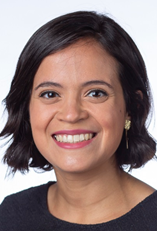
Julie Ann Luna Torres, MD
Why did you decide to pursue pediatric gastroenterology?
I love being able to think about multiple organs within one organ system and having the flexibility to practice medicine in different settings such as inpatient, outpatient and lots of fun procedures!
What are your research interests?
I am interested in health equity and health disparities, specifically how these affect outcomes in regard to pediatric endoscopy.
Why did you choose to train at Children’s Hospital Colorado?
I wanted to train at a program with high volume and high acuity. The faculty here is amazing and although they are my teachers and mentors, it feels like family.
What are your hobbies and what do you like to do in your spare time?
I enjoy spending time outside, reading, traveling with my family, finding new cocktail bars and restaurants and I recently learned to ski after moving to Denver!
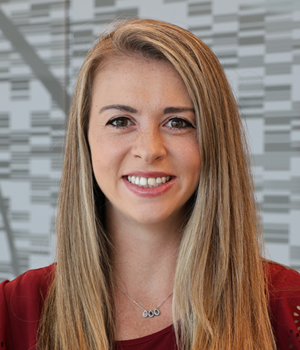
Danielle Noles, MD
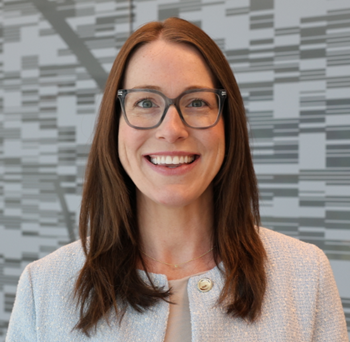
Katie Rose Conover, MD
Why did you decide to pursue pediatric gastroenterology?
I liked the variety of pathology -- from metabolic diseases affecting the liver, to disorders of gut brain interaction, to congenital anatomic issues manifesting with GI/liver symptoms like vomiting or jaundice. I also enjoy the combination of inpatient care, clinic, and procedures.
What are your research interests?
I am interested in hepatology and am going to do a liver transplant year, so I am pursuing translational hepatology research during fellowship in biliary atresia and gestational alloimmune liver disease.
Why did you choose to train at Children’s Hospital Colorado?
There are fantastic attendings to learn from, good volumes and variety of pathology, lots of hepatology exposure from renowned experts in the field, strong research infrastructure all in a beautiful city with lots to explore and enjoy on your time off.
What are your hobbies and what do you like to do in your spare time?
My husband, sheepdog and I did a lot of hiking, skiing, and DIY house projects our first couple of years here. We just had our first baby, so enjoying this new chapter. I also like to read, check out new restaurants and breweries, and go for walks at the park down the street.
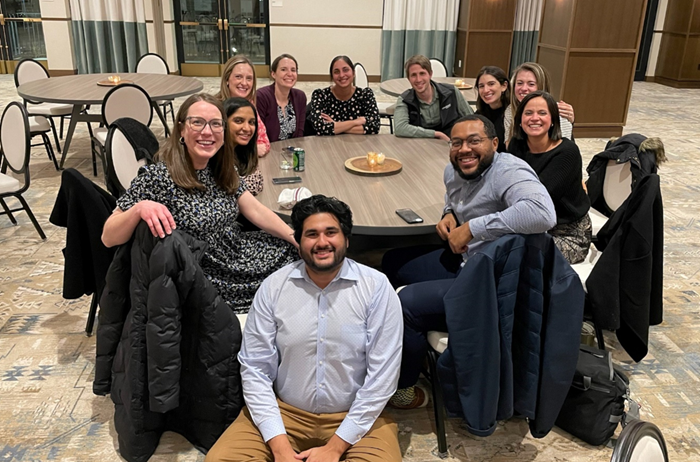
| Date | Activity |
| Monday, May 31, 2026 | ERAS 2026 season ends at 5 p.m. ET. |
| Wednesday, June 3, 2026 | ERAS 2027 season begins at 9 a.m. ET. |
| Thursday, June 4, 2026 | EFDO will release tokens to fellowship applicants. |
| Wednesday, July 1, 2026 | July cycle fellowship applicants may begin submitting applications to programs at 9 a.m. ET. |
| Wednesday July 15, 2026 | July cycle fellowship programs may begin reviewing applications at 9 a.m. ET. |
| May 31, 2027 | ERAS 2027 season ends at 5 p.m. ET. |
| Dates | Activity |
| Wednesday, August 26, 2026 | Match Opens |
| Wednesday, September 30, 2026 | Ranking Opens |
| Wednesday, October 28, 2026 | Quota Change Deadline |
| Wednesday, November 18, 2026 | Rank Order List Certification Deadline |
| Wednesday, December 2, 2026 | MATCH DAY |
Required Application Materials
We are registered with ERAS (The Electronic Residency Application Service). Please login to ERAS, complete the Common Application Form, and attach the following supporting documentation:
Our pediatric fellowship will be conducting virtual interviews for this upcoming interview season. We look forward to sharing our programs with you and getting to know more about you.
Interviews are scheduled from August thru end of October and will be conducted virtually. We will send interview offers out end of July as well as a list of interview dates that will be held in August, September, and October. These will be filled on a first-come, first-serve basis. Applicants selected for a personal interview will be contacted by the fellowship program coordinator.
If you have questions about the application and interview process, please reach out to our program coordinator, Meg Book-Smith by email at Meggan.Book-Smith or by phone at 720-777-2738.
Here are our interview dates:
Salaries are guaranteed by CU SOM and paid at the relevant PGY level with standard dental and medical insurance benefits for the fellow and family, and disability and life insurance. Funds are available for travel to one or two medical conferences per year and for books/journals.
Weekend at-home call for fellows is divided among the fellows and averages every ninth weekend. Weeknight at-home call is shared by first-year fellows. Fellows are supervised by designated GI and Liver attendings.